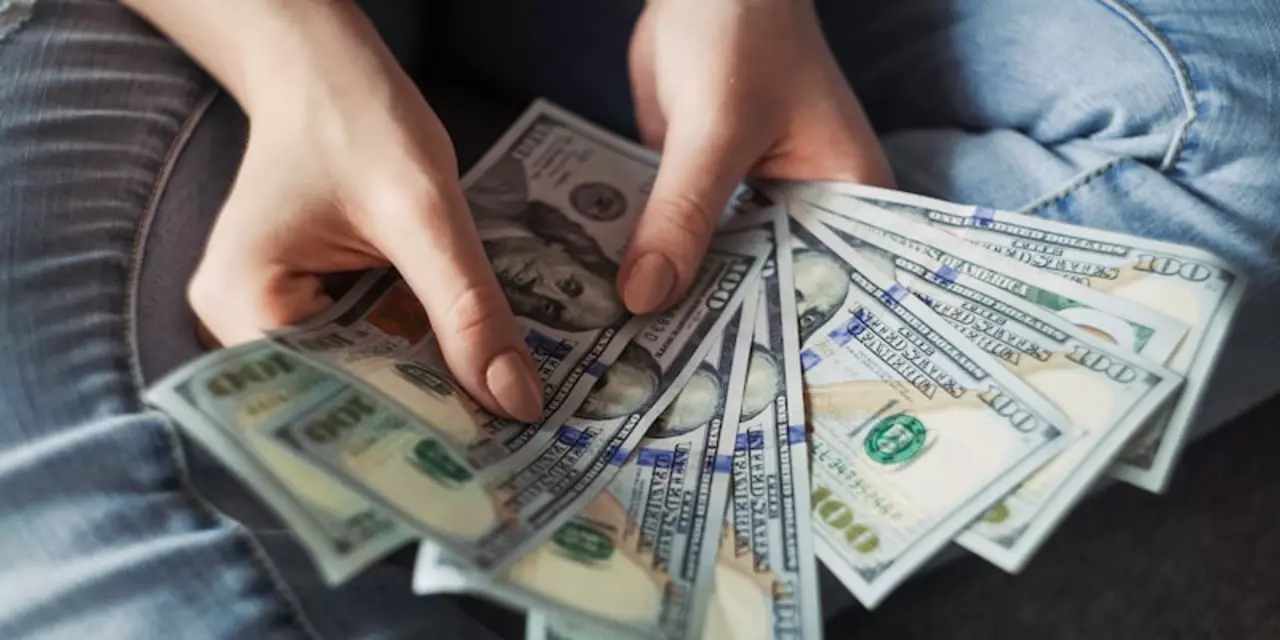The Federal Reserve, sometimes known as "the Fed," is the central banking system of the United States. It is responsible for creating and controlling the money supply, as well as regulating the banking industry and setting monetary policy. One of its primary roles is to create money. But did the Federal Reserve stop making money?
The answer is no. The Federal Reserve does not actually "print" money, but it does create money. This is done through a process called "monetary expansion," or increasing the money supply. This is done by buying securities, such as Treasury bonds, from the open market. The money used to buy these securities is created out of thin air. This process is sometimes referred to as "quantitative easing."
The Federal Reserve can also reduce the money supply by selling securities. This is known as "monetary contraction" and it is done in order to keep inflation in check. So while the Federal Reserve does not actually "print" money, it does control the money supply by buying and selling securities.
In conclusion, the Federal Reserve does not stop making money. Rather, it controls the money supply through a process of monetary expansion and contraction. This is done in order to maintain the stability of the economy and keep inflation in check.
The Federal Reserve is the central bank of the United States, and it is responsible for controlling the money supply. Its actions have a huge impact on the money supply, and it is important to understand how it works.
The Federal Reserve's primary tool for controlling the money supply is through open market operations. Through this tool, the Federal Reserve can buy or sell Treasury securities from banks, which affects the money supply. When the Federal Reserve buys Treasury securities, it adds money to the money supply, and when it sells them, it takes money out of the money supply.
The Federal Reserve also has other tools to influence the money supply, such as setting interest rates and adjusting the reserve requirement. When the Federal Reserve sets a higher interest rate, it makes borrowing money more expensive, which reduces the money supply. When it reduces the reserve requirement, it allows banks to loan out more money, increasing the money supply.
The Federal Reserve has not stopped making money. It has been actively engaging in open market operations and other tools to control the money supply. While its actions may not always be visible, they can have a significant impact on the money supply.
The Federal Reserve has recently announced that it has stopped creating money. This decision raises many questions about the impact of this move for the U.S. economy and for individuals. Let’s explore the implications of this decision.
Impact on the U.S. Economy
The Federal Reserve’s decision to stop creating money will have a significant impact on the U.S. economy. By halting the money creation process, the Federal Reserve is attempting to slow down inflation by reducing the money supply. This means that the cost of goods and services will rise, as there is less money available to purchase them. Ultimately, this could lead to a slowdown in economic growth and even a recession.
Impact on Individuals
The decision by the Federal Reserve to halt money creation will have a direct impact on individuals. As the cost of goods and services rises, individuals will have to spend more money than they would have otherwise. This could lead to increased debt levels and financial hardships, especially for those on fixed incomes or with limited savings.
Conclusion
The Federal Reserve’s decision to stop creating money has wide-reaching implications for the U.S. economy and for individuals. While the goal of reducing inflation is admirable, it is important to consider the potential negative impacts that this move could have on individuals and the economy as a whole.
The Federal Reserve recently announced that it would stop creating new money. This decision has raised questions about the potential benefits of such a move. In this blog post, we’ll explore the potential advantages of the Federal Reserve discontinuing the practice of money creation.
One of the primary benefits of the Federal Reserve stopping money creation is that it could help to reduce inflation. When the Federal Reserve creates money, it increases the supply of money in circulation and this can lead to inflation. By decreasing the amount of money created, the Federal Reserve can help to reduce inflationary pressures in the economy.
Another potential advantage of the Federal Reserve stopping money creation is that it could help to stabilize the value of the US dollar. When the Federal Reserve creates money, it erodes the value of the dollar by increasing the supply of money in circulation. This can lead to instability in currency markets, as the value of the dollar fluctuates. By decreasing the amount of money created, the Federal Reserve can help to stabilize the value of the US dollar.
Finally, the Federal Reserve stopping money creation could help to support the economy in the long-term. By decreasing the amount of money created, the Federal Reserve can help to reduce the amount of debt held by the US government. This could help to reduce the burden of debt on the US economy, allowing it to grow and expand in the long-term.
In conclusion, the Federal Reserve stopping money creation could bring about a number of potential benefits. It could help to reduce inflation, stabilize the US dollar, and support the US economy in the long-term. It is important to keep in mind, however, that the Federal Reserve’s decision to stop money creation is just one part of a larger economic policy, and it is important to consider the potential implications of the decision before making any decisions.
The Federal Reserve plays a major role in the United States economy, and it is responsible for creating and managing the money supply. Recently, there has been a lot of speculation over whether or not the Federal Reserve will stop creating money. While this is a complex issue, it’s important to understand the potential consequences of the Federal Reserve ceasing money creation.
The most immediate consequence of the Federal Reserve ceasing money creation would be a dramatic decrease in the money supply. This would result in a decrease in the amount of money available for consumers to spend, leading to a decrease in economic activity. The decrease in economic activity would lead to a decrease in demand for goods and services, which could lead to a decrease in prices. This could have a deflationary effect on the economy, as prices would be decreasing while the cost of borrowing would remain the same.
Another consequence of the Federal Reserve ceasing money creation is that interest rates would likely increase. This would lead to increased borrowing costs for businesses and consumers, leading to a decrease in investment and spending. This could further decrease economic activity, leading to even lower prices and further deflationary pressures.
Finally, the Federal Reserve ceasing money creation could lead to an increase in unemployment. This is because a decrease in economic activity would lead to a decrease in demand for labor, resulting in fewer jobs and higher unemployment. This could have a devastating effect on the economy, as it would likely lead to an increase in poverty and inequality.
In conclusion, the consequences of the Federal Reserve ceasing money creation could be far-reaching and devastating. It is important to understand the potential impacts of such a decision before it is made. Hopefully, any decision made by the Federal Reserve will be one that is beneficial for all Americans.




Write a comment